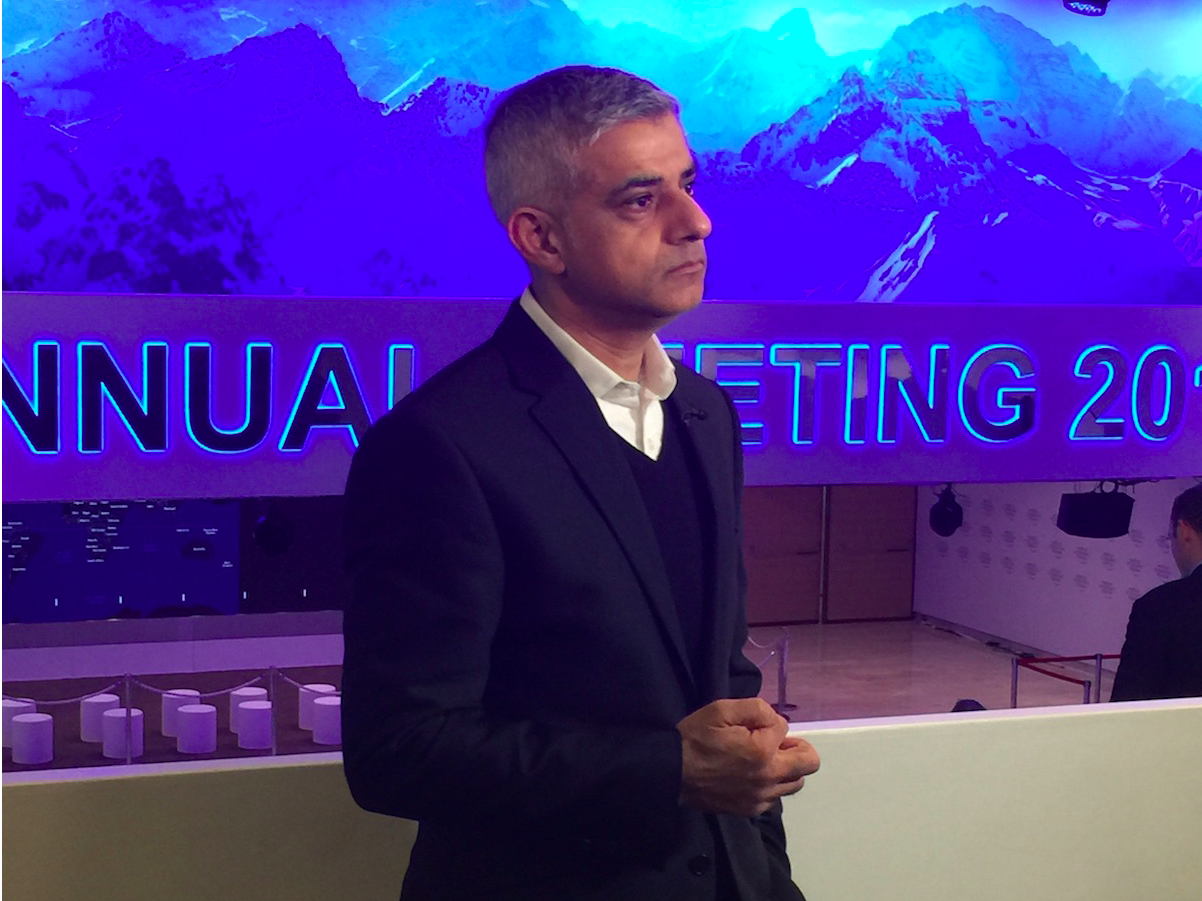DAVOS, Switzerland – Mayor of London Sadiq Khan is telling business and political leaders that “hard Brexit” is terrible for the European Union as well as Britain because if businesses relocate, it will be to Asian countries or the US, not other European cities.
Business Insider, as well as a small crowd of people, watched Khan speak in an interview in the public area of the Congress Centre at the World Economic Forum meeting in Davos.
“It’s really important that the negotiations with the EU end with us having a good relationship with the European Union. ‘Hard Brexit’ does London damage, our country damage,” said Khan.
“But the point I’m making to our European friends, business and political leaders is if businesses decide to leave London, they’re not going to move to Paris, Madrid or Frankfurt, they’ll be going to Hong Kong, Singapore, or New York. So ‘hard Brexit’ is a lose-lose – bad for London, bad for the UK, bad for the EU.”
Here is the video:
A "hard Brexit" is shorthand for Britain leaving the European Union without access to the Single Market in exchange for having full control over immigration into the country.
On Tuesday, Prime Minister Theresa May confirmed that Britain plans to leave the Single Market as part of its withdrawal from the EU. She also said she would terminate Britain's membership of the free-trade area to have full control over immigration from the European Union.
This was confirmed by Chancellor Philip Hammond, who told the House of Commons on Tuesday morning that Britain would no longer be in the European single market once the Brexit deal is finalised. "We will go forward understanding we cannot be members of the single market," he said on Tuesday.
The loss of passporting rights following Brexit is one of the biggest fears in the City of London.
If the passport is taken away, then London could cease to be the most important financial centre in Europe, costing the UK thousands of jobs and billions in revenues. Around 5,500 firms registered in the UK rely on the European Union's passporting rights for the financial services sector, and they turn over about £9 billion in revenue.

